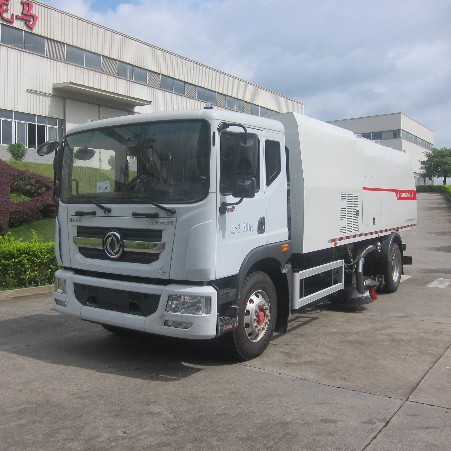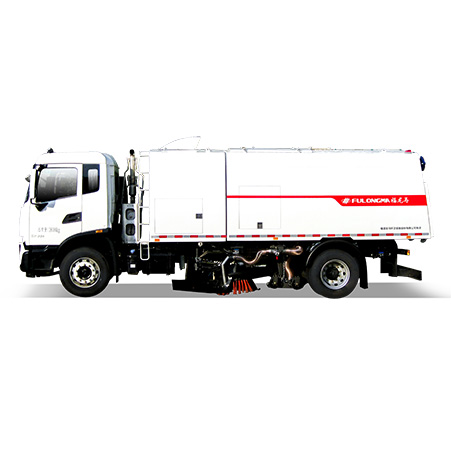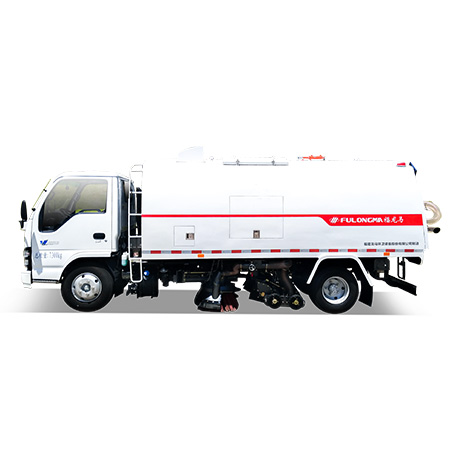Street cleaning is a cornerstone of urban management, playing a crucial role in maintaining cleanliness, reducing health risks, and enhancing the quality of life for residents. But when choosing the best method for cleaning streets, the debate often boils down to sweeper vacuum trucks versus traditional cleaning methods. While traditional techniques have been relied upon for decades, modern sweeper vacuum trucks promise a level of efficiency and precision that’s hard to ignore.
Traditional Cleaning Methods
Traditional street cleaning methods date back centuries and often involve manual labor and simple tools like brooms, shovels, and carts. Over time, mechanized options like broom trucks and water spraying systems were introduced, offering slight efficiency improvements.

Advantages
- Cost-Effective Setup: These methods require minimal upfront investment compared to high-tech machinery.
- Simplicity: Traditional tools and techniques are easy to understand and implement without specialized training.
- Localized Flexibility: Ideal for small-scale operations or areas with narrow pathways.
Disadvantages
- Labor-Intensive: Requires a significant workforce, which can be expensive in the long run.
- Limited Efficiency: Struggles with fine particles, wet debris, or hazardous materials.
- Environmental Concerns: Often involves high water usage and inadequate dust suppression.
Sweeper Vacuum Trucks

Sweeper vacuum trucks represent the cutting-edge of street cleaning technology. Equipped with powerful vacuum systems, rotating brushes, and dust suppression mechanisms, these vehicles combine sweeping and suction to clean streets thoroughly and efficiently.
Advantages
- High Efficiency: Capable of cleaning large areas quickly and effectively.
- Precision Cleaning: Removes fine particles, liquids, and even hazardous debris.
- Environmentally Friendly Options: Newer models feature electric motors and water recycling systems.
Disadvantages
- High Initial Investment: Purchasing and maintaining these vehicles can be costly.
- Complex Maintenance: Requires skilled personnel for operation and repairs.
- Not Ideal for Small-Scale Use: Overkill for areas with low cleaning demands.
Detailed Comparison

1. Efficiency
- Traditional Methods: Manual cleaning is time-consuming and inconsistent, especially for larger areas. Broom trucks are better but still leave fine particles and debris behind.
- Sweeper Vacuum Trucks: These trucks excel in efficiency, capable of cleaning streets in a fraction of the time with superior results.
2. Cost
- Traditional Methods: The upfront cost is low, but the long-term expenses of hiring and retaining a workforce can add up.
- Sweeper Vacuum Trucks: High initial investment, but the cost evens out over time due to reduced labor needs and operational efficiency.
3. Environmental Impact
- Traditional Methods: Often involve excessive water usage and contribute to airborne dust during sweeping.
- Sweeper Vacuum Trucks: Many trucks feature advanced dust suppression and water recycling systems, reducing their environmental footprint.
4. Maintenance
- Traditional Methods: Simpler tools mean lower maintenance costs, though the human workforce requires ongoing expenses.
- Sweeper Vacuum Trucks: Regular servicing and skilled personnel are needed to keep these machines running efficiently.
5. Safety
- Traditional Methods: Increased risk of leaving debris behind, which can lead to accidents. Workers are also exposed to hazards like dust and traffic.
- Sweeper Vacuum Trucks: Safer for operators and pedestrians as they efficiently remove debris and reduce airborne dust.
Conclusion

When it comes to large-scale urban cleaning, sweeper vacuum trucks are the clear winners in terms of efficiency, environmental impact, and safety. However, traditional cleaning methods still hold their ground in small towns or rural areas where simplicity and low costs are priorities. The best choice often depends on the specific needs of the area being serviced.
FAQs
1. Are sweeper vacuum trucks worth the investment for small towns?
It depends on the town’s needs. Small towns with limited budgets may benefit more from traditional methods. However, investing in a compact, low-maintenance sweeper vacuum truck could be a cost-effective solution for reducing long-term labor costs.
2. How do traditional cleaning methods compare in rural areas?
In rural areas with less debris and fewer paved surfaces, traditional methods are often sufficient. Their simplicity and low cost make them an attractive option.
3. What is the average lifespan of a sweeper vacuum truck?
With proper maintenance, sweeper vacuum trucks can last anywhere from 8 to 15 years, depending on usage frequency and build quality. Regular servicing is key to maximizing their lifespan.






